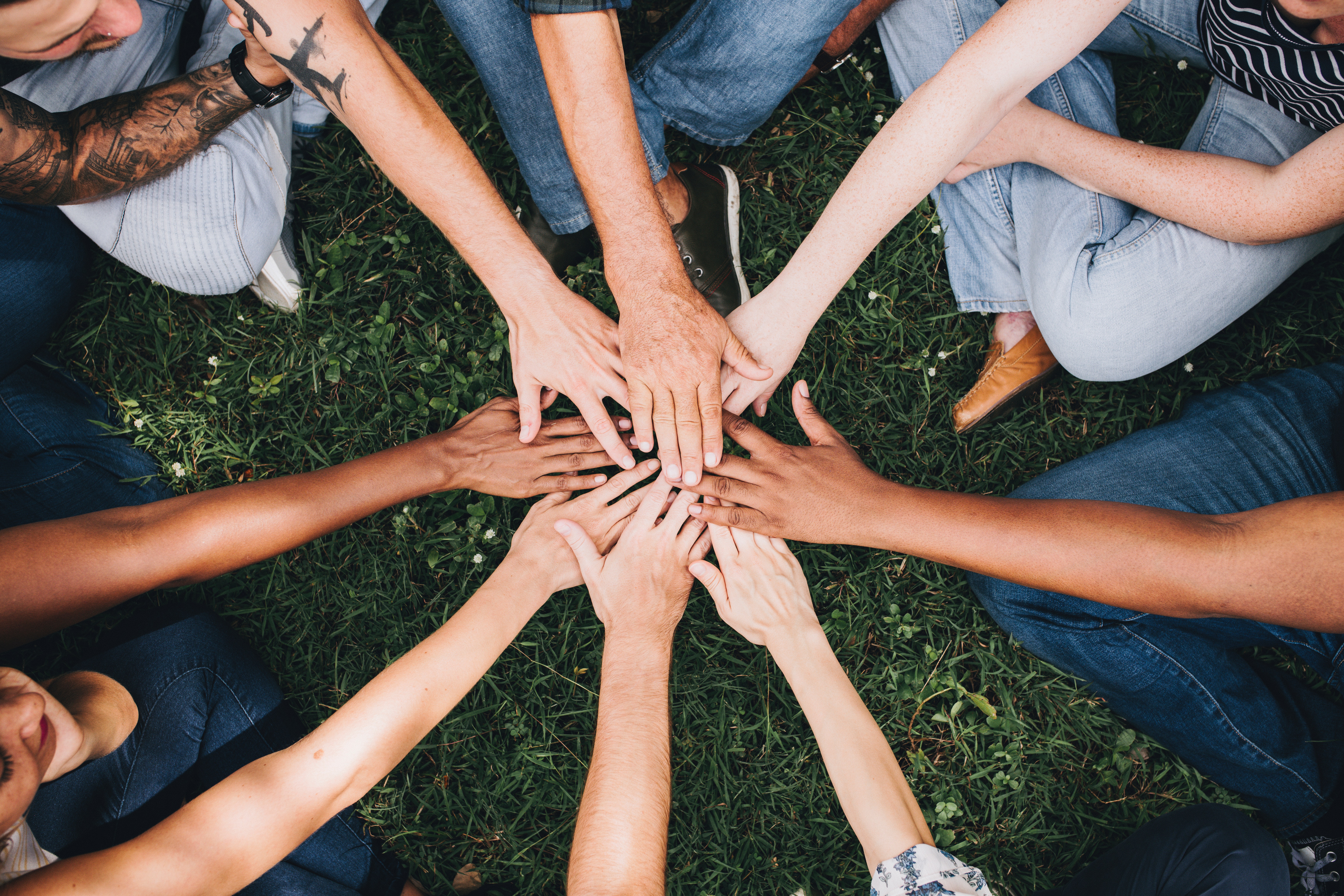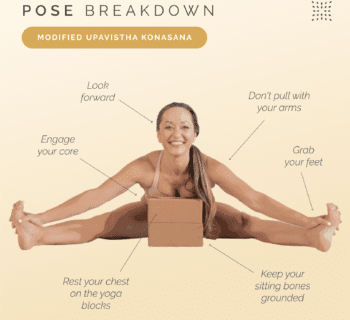“Body image is not a fact.”
I first heard this statement while in treatment for an eating disorder. I remember sitting in group therapy feeling outright annoyed upon hearing this statement. Who was this put-together looking therapist (also thin and white like me) attempting to convince me that my absolute intolerance for every square inch of my body wasn’t based on fact? Was she for real? Who did she think she was, invalidating the pathetic reflection I glimpsed in every single mirror and storefront window day in and day out?
I amassed decades of evidence telling me that my body was wrong, disgusting, and took up too much space—from the size of my jeans to the teeny models on the magazine covers to my own unhelpful inner narrative. And so did the women with whom I was in treatment. Most of us were white and young-ish with varying body sizes, genders, creeds, and sexual orientations. We believed our body-loathing to be 100% legit. Not only did we “see” with our own brain-starved eyes our “lumpy,” “squishy,” and “overflowing” flesh, but the supreme keeper of fact, the almighty scale, would surely prove us right. The girls and I could rationalize for hours why the number, right down to the decimal, sufficiently proved that our so-called body image was indeed a fact.
The Trap of Disempowering Body Narratives
Years and a whole lot of healing later, I find myself compassionately sharing that same sentiment—body image is not a fact—with my yoga therapy clients. Do they believe me? Maybe. Probably not. At least not the first 15 times I say it. After all, we aren’t ready to hear something until we are ready to hear it (like when I was in treatment). I also deeply know how invalidating those word can feel when one’s body narrative absolutely feels like a fact—an inescapable plight of guilt, shame, and comparison and the thoughts and behaviors that express these painful states.
Research on body image illuminates the extent to which body image influences self-esteem and self-worth. According to research presented by Dr. Margo Maine in 2017 at the National Eating Disorder Information Centre’s Body Image and Self-Esteem Conference, 15% of girls reportedly skip school, 13% will not speak out to give an opinion, 5% will not go to a job interview, and 3% will call out of work when they feel bad about their bodies. Similarly, 17% of women reportedly will not show up for a job interview, and 8% will not go to work.
The journal Body Image reported a high prevalence of body dissatisfaction among adults in the United States. The study, which included 12,176 US men and women who completed an online survey, found that only about a quarter of the participants were satisfied with their appearance.
The 2017 Dove Global Girls Beauty and Confidence Report, which interviewed 5,165 girls aged 10 to 17 across 14 countries, reported that higher levels of body esteem have a lasting impact on a girls’ confidence, resilience, and life satisfaction. Conversely, poor body image was associated with not participating in social activities due to feeling self-conscious about their appearance. The report found that girls generally would prefer that the media include more diverse body sizes and are dissatisfied with the emphasis on beauty as a means of happiness.
Shifting Perceptions
What exactly is body image, and why is compassion vital for creating personal and social transformation? According to Judith Lightstone, author of the article, “Improving Body Image,” body image involves our perception, imagination, emotions, and physical sensations of and about our bodies. Body image is sensitive to mood, environment, and physical experience. It is learned in the family, among peers, and through social and cultural expectations. Perception is fluid; fact is a hard stop.
When we finally come around to giving ourselves permission to embrace (or at least consider) that body image is a perception rather than fact, portals to healing open in unexpected and powerful ways as new body narratives have space to emerge. Unlike fact, perceptions can be challenged, shifted, and reoriented. We can relieve ourselves from the oppression of self-hate and rewrite body narratives grounded in possibility. Although our body narratives are strongly influenced by social messages, cultural expectations, and familial beliefs, they still belong to us, which means we have the capacity to challenge, shift, and reorient our perceptions about our bodies. We have freedom to relate to our bodies in new ways and explore their power and grace.
I wholeheartedly own that I write this article from a privileged perspective. Who am I to speak of oppression? I am uncomfortably and acutely aware that my body and skin color afford me social acceptance. Embracing body image as a perception I am free to revise is also a privilege. From my education (another privilege), conversations with others, and seeking out the stories of those whose lives look very different than mine, I respect the fact that power structures reinforce which bodies “belong” and which do not. Power structures that are sexist, racist, able-ist, size-ist, classist, heteronormative, and ageist are burdensome barriers, exacerbating the efforts of many to perceive their bodies in affirming or even more neutral ways. Although these barriers are mighty, compassion is a force that can move the human spirit in surprising ways and represents the possibility for shifts in perceptions about all bodies.
Practicing Compassionate Listening
If you wish for a kinder relationship with your own body and the same for others and their bodies, my call to action, then, is twofold: First, compassionate listening so that everyone feels heard, seen, and valued. Fervently listen with compassion to the stories of those whose life circumstances are different than yours. Be curious, ask questions, invite others to speak about the barriers in their lives. Practice dropping your biases and open your heart to the greatest capacity for empathy and connection. Listen without giving advice or sharing your own story. Allow the other person to truly be seen and heard, as it’s in these moments—when we take up the space we rightly deserve—that the subtle and clear energy of healing shows up. Listening with compassion allows everyone to feel their life experiences are included, validated, and valued. And as we learn to listen without judgement to others, we show ourselves where there is room for compassionate listening within ourselves.
Practice bringing this open, compassionate energy to your social media use, too. Diversify your social media newsfeeds so that you are learning from and about other groups’ experiences, the challenges they face, and understand what they value. In the spirit of compassionate listening and social empowerment, you might even share these posts on your own newsfeeds, amplifying those voices engaged in conversations about body image that our world needs to hear. Additionally, be mindful of the words included in your own posts to avoid perpetuating insensitive cultural and social messages about bodies.
Honoring the Threads of Shared Experience
Secondly, hold compassion for the intimate beauty of shared experience. Despite our varying life circumstances, we share a common thread, that at one time or another we were locked into the painful belief that our body image is a fact, that we can relate the weight of guilt, shame, and comparison, that we know the depths of despair that accompanies body loathing. This is a deeply powerful inner knowing, the kind that doesn’t even require we know each other’s names or other personal information. By nature of this shared common thread, we speak the same language.
Connecting through such palpable understanding and empathy is a defining moment of human affinity from which personal and social transformation stems. For example, it’s because of this shared understanding with my clients that I can authentically embody compassion through my eyes, tone, body language, and words, allowing them a safe space to speak their truth. From this compassionate space flows the safety they need to move toward new, empowering perspectives and self-care practices.
Compassion Creates Change
I invite you to reflect on where there is room for compassion toward your own body and other’s bodies, too. What “facts” that inform your own body narratives are holding you back from offering this compassion to yourself and others? Take time to be with these questions, and no matter the answers that come, remember compassion. This is our greatest source of power as we seek an affirming relationship with our body and find healing in our shared experiences with others.
References
Judy Lightstone, “Improving Body Image,” Auckland PSI (Psycho Somatic Integration) Institute,
Additional Reading, http:www.psychotherapist.org/improving-body-image.html.
Margo Maine, “Invisible Women: Eating Disorders and the Pressure to Be Perfect at Midlife and Beyond: A Relational Culture Approach,” National Eating Disorder Information Centre (NEDIC), http://nedic.ca/node/976. 7.
David A. Frederick, Gaganjyot Sandhu, Patrick J. Morse, and Viren Swami, “Correlates of Appearance and Weight Satisfaction in a U.S. National Sample: Personality, Attachment Style, Television Viewing, Self-Esteem, and Life Satisfaction,” Body Image 17 (June 2016): 191–203, https://doi.org/10.1016/j.bodyim.2016.04.001
“Girls on Beauty: New Dove Research Finds Low Beauty Confidence Driving 8 in 10 Girls to Opt Out of Future Opportunities,” PRNewswire, October 5, 2017, https://www .prnewswire.com/news-releases/girls-on-beauty-new-dove-research-finds-low-beautyconfidence-driving-8-in-10-girls-to-opt-out-of-future-opportunities-649549253.html.
By Jennifer Kreatsoulas, PhD, E-RYT 500, C-IAYT
NOTE: This post is part of a collaborative media series organized and curated by Omstars and the Yoga & Body Image Coalition intended as a deep dive into yoga & body image.
Jennifer Kreatsoulas, PhD, E-RYT 500, C-IAYT, is a certified yoga therapist specializing in eating disorders and body image. She is an inspirational speaker and author of Body Mindful Yoga: Create a Powerful and Affirming Relationship With Your Body. Jennifer provides yoga therapy via online and in person at YogaLife Institute in Wayne, PA, and leads yoga therapy groups at Monte Nido Eating Disorder Center of Philadelphia. She teaches workshops, retreats, and specialized trainings for clinicians, professionals, and yoga teachers. She also mentors professionals who wish to integrate yoga into their work with eating disorder clients. Jennifer is a partner with the Yoga & Body Image Coalition and writes for Yoga International and Yoga Journal and other influential blogs. She has appeared on Fox29 news and WHYY’s “The Pulse,” and has been featured in the Huffington Post, Real Woman Magazine, Medill Reports Chicago, Philly.com, The Yoga International Podcast, and ED Matters Podcast. Connect with Jennifer: www.Yoga4EatingDisorders.com.










